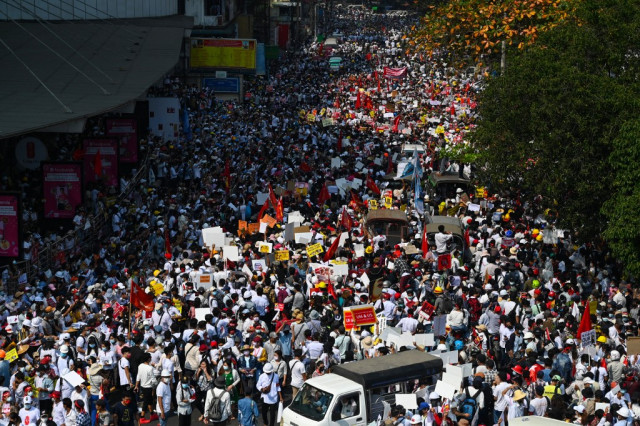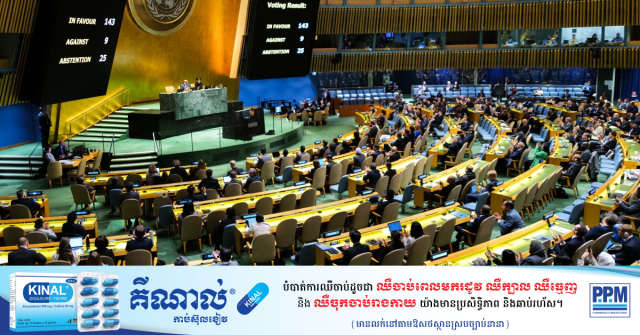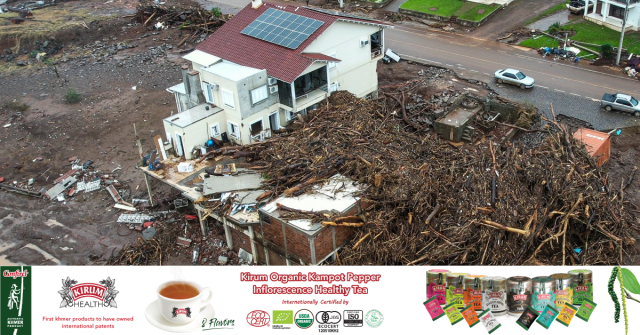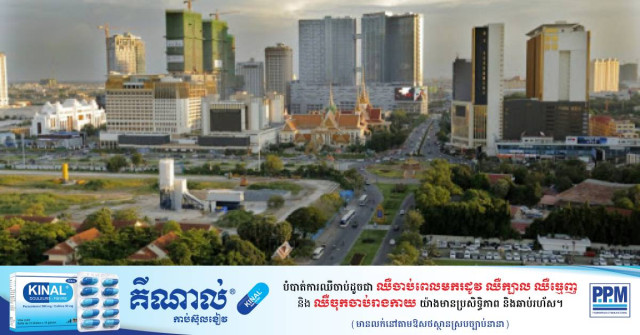Civil Society Groups, Environmentalists and the Public Ask the Authorities to Look into the Wall Built on Sihanoukville Beach
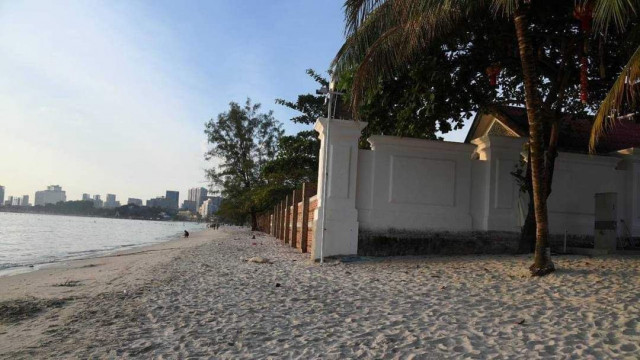
- By Lay Sopheavotey
- February 5, 2023 3:24 PM
PHNOM PENH — A wall built along the beach in Preah Sihanouk province has prompted NGOs and environmentalists to ask the authorities to take action as this affects the integrity of the beach and the public’s benefits of their seashore, they said.
A wall should never be allowed on the beach in Sihanoukville even if land along it has been sold to individuals, they said.
Cambodia’s beaches, which are considered beautiful, have become tourist destinations, environmentalist San Mara said on Feb. 3. Because of this, they benefit the public and the country: They should not be conceded to individuals and blocked by structures, he said.
Since the wall has been built along a section of the beach, numerous comments have been posted by people on social media in addition to NGOs and environmentalists releasing statements. According to some messages, this wall stands barely five meters from the water. “The government should seize the land and keep it as public space,” people write on social media.
In response to these comments, Preah Sihanouk Province Deputy Governor Long Dimanche said on Feb. 3 that it was difficult for him to explain the matter or to say whether the structure was legal or illegal. However, he said that he had gone through the ownership documents, and that there was legal ownership of the property located in Sangkat 4 on Ochheuteal Beach.
“They (the public) mentioned whether it was a legal or an illegal concession of the land, but the matter is not within my authority: It’s for the experts,” Dimanche said. “As far as we know, the location was the Maritime Police Department, not a public place,” he said, adding that in 2008, there had been a private company exchanging locations with this one through legal ownership transaction and documents.
However, Dimanche added that he could not clarify the matter. “What I know is that there was a legal ownership document when I checked on that,” he said. “[T]he public said that I was the one who had made this [land situation and wall] legal, which is not true: I only clarified that the location is someone’s property.”
There used to be a fence at that location but, since it was damaged, the owner had asked to rebuild it within the same parcel of land, Dimanche said.
Asked who was the owner of the property, the deputy governor replied that this was a private matter. He added that there might be a development plan for this land, but that he was not sure about it and that, in any case, no marked progress had been made to develop this parcel of land since ownership had been transferred.
Asked about this issue, Cambodian Government spokesman Phay Siphan on Feb. 3 declined to comment, leaving it to the Ministry of Land Management and the Sihanoukville provincial officials to speak on the matter.
Ministry of Land Management spokesperson Seng Lout said on Feb. 3 that he could not answer at this point as he needed to review documents and check with the local officials for more information before making comments.
If a public place does not benefit the public, the government has the right to turn the place into a private property of the government and to grant is to a company or individual as a concession.
However, according to environmentalist San Mala and Am Sam Ath, monitoring manager for the human rights organization LICADHO, this case is different as it is located on Ochheuteal Beach, which is a tourism destination and, since it benefits the general public, should not be turned into a land concession.
“The government should review the case and should never allow such construction [on the beach],” Mala said on Feb. 3. “It is an unpleasant sight while our beach has been ranked as one of the most beautiful beaches.”
As Sam Ath explained, conceding land on the beach can be done, but the government must review each case and make recommendations to preserve the beauty of the beach, because building a long stretch of wall like this one affects public interest.
“The government can issue land concessions but should maintain the original settings by only [allowing to enhance] the beauty [if opening] for businesses,” Sam Ath said on Feb. 3. “They should not build a wall like this, which only damages the beach’s beauty.
“If it has turned out like this, the government should seize or end the concession,” he added.
Regarding information on the ownership of this property, Sam Ath said that, when the government grants a land concession to a company or individual, it is hard to find information regarding the details of the agreement.
Originally written in Khmer for ThmeyThmey, this story was translated by Meng Seavmey for Cambodianess.










